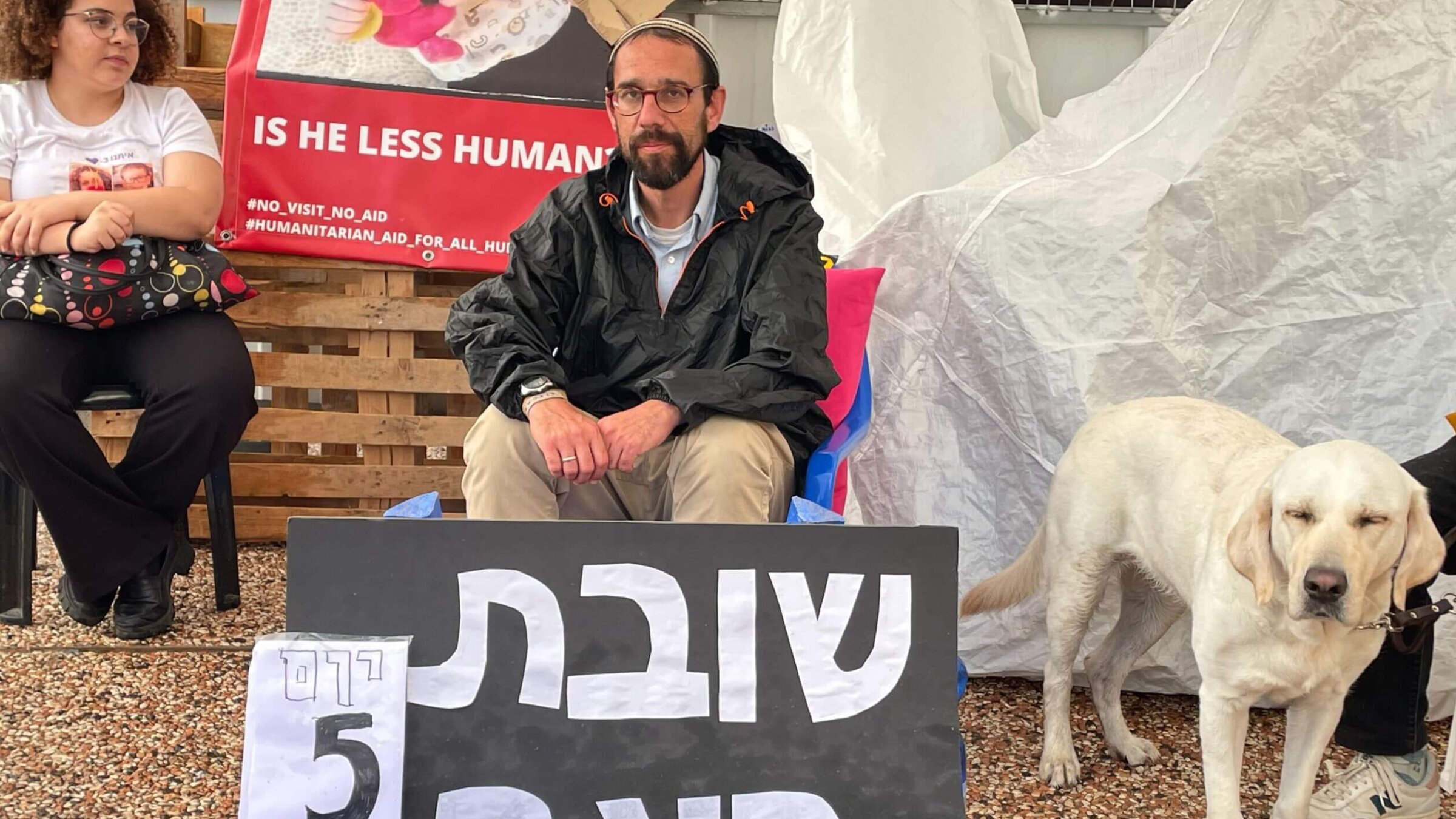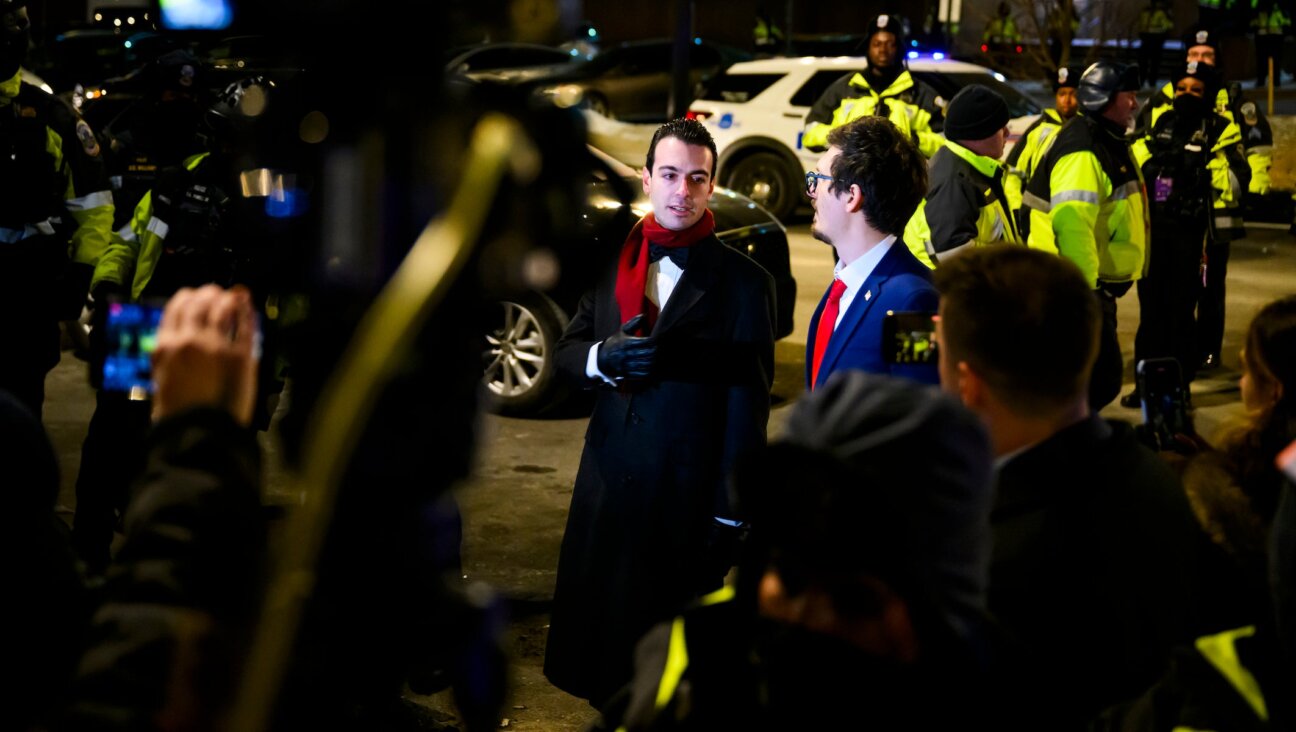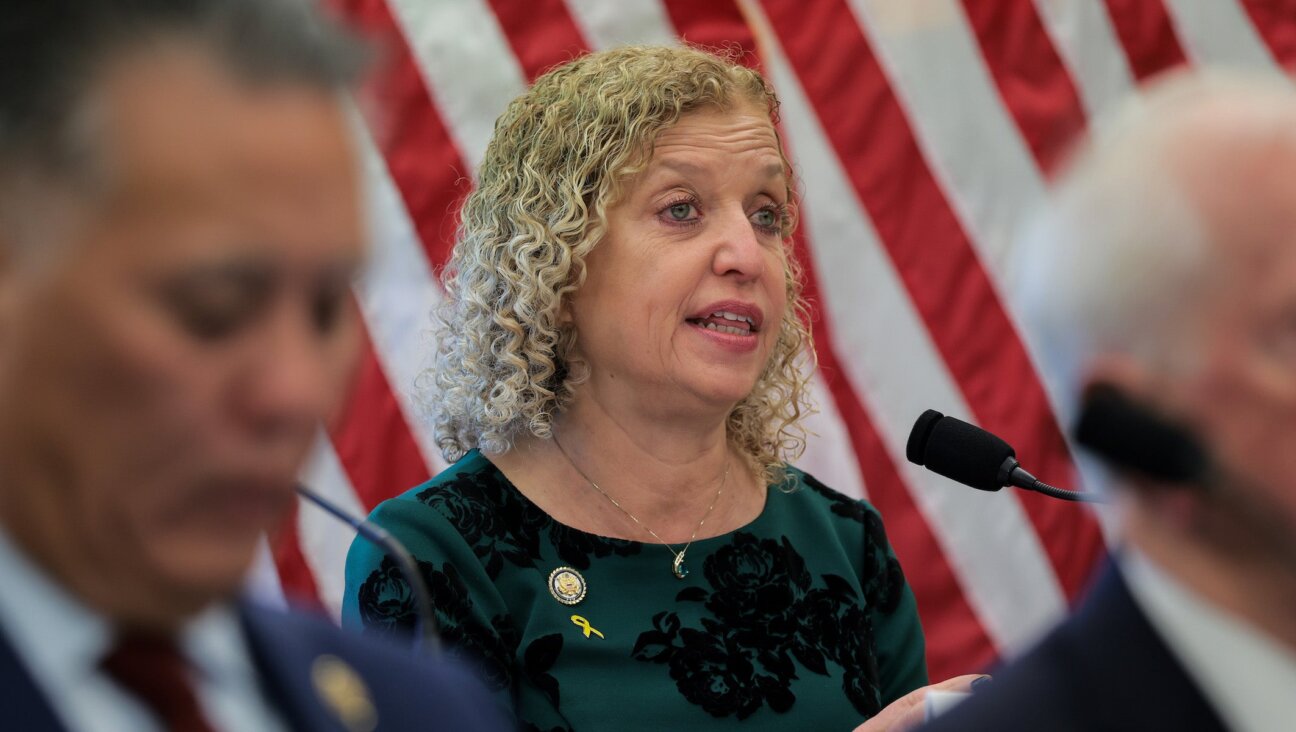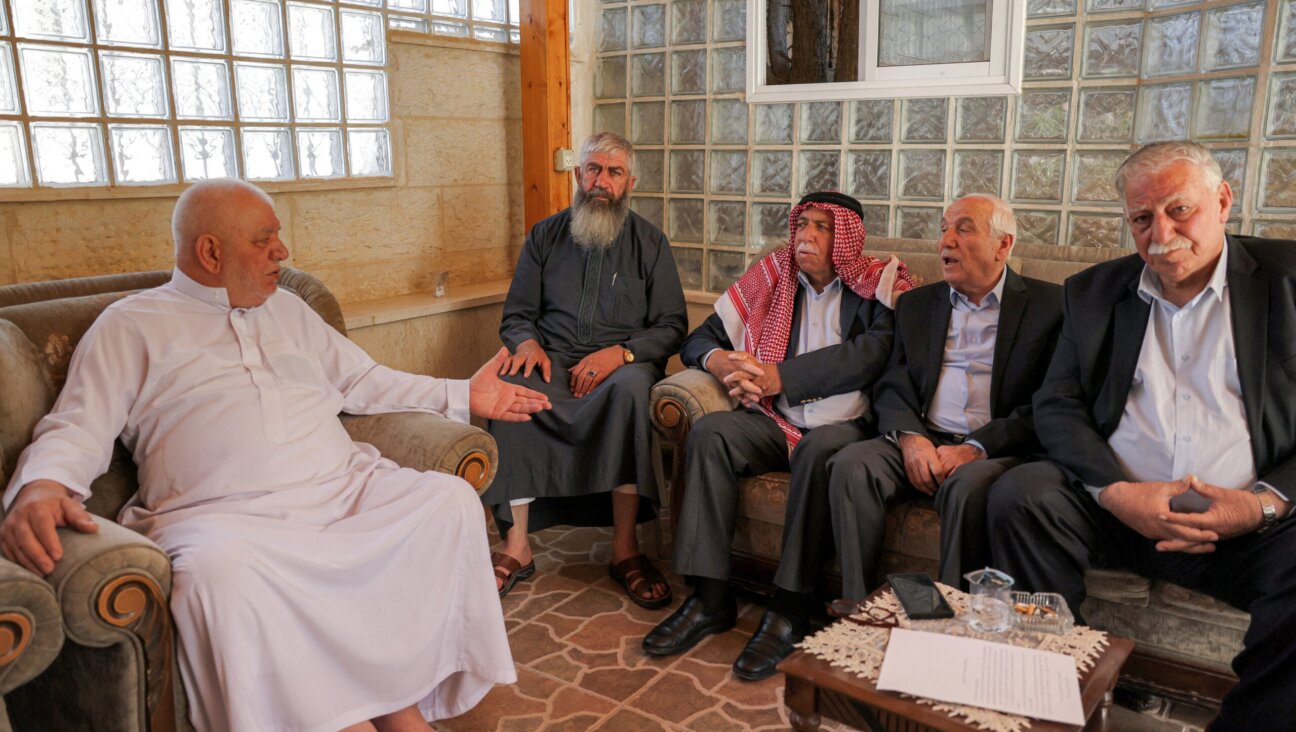An Israeli rabbi says he won’t eat until the Red Cross visits hostages in Gaza
Referencing a Talmudic teaching, Rabbi Avidan Freedman also drew a circle around himself, and vowed to stay within it until his demands were met

Israeli Rabbi Avidan Freedman on the fifth day of his hunger strike on Nov. 14, 2023. Photo by Jacob Kornbluh
TEL AVIV — Rabbi Avidan Freedman drew a circle around himself six days ago and declared that he would not step outside it or eat before the Red Cross visited the hostages held in Gaza.
“I felt like I needed to do something a little bit insane,” he told me at his protest spot outside the Tel Aviv Museum of Art. Its plaza has become Israel’s focal point for those who want to make sure the country and the world remember the scores of people Hamas kidnapped from Israel on Oct. 7.
He drew inspiration for his protest, he said, from Honi Ha’Ma’agel, also known as “Honi the Circle-drawer,” a Jewish sage from the first century CE who sat inside a circle in hopes of ending a drought. Honi, according to the Talmud, refused to leave the circle until God brought rain. (The story showcases Honi’s agency. When God made it drizzle, Honi asked for a stronger rain. When God made it pour, Honi asked God to ease up, and God finally delivered the rain Honi wanted.)
Rain erased Freedman’s circle Tuesday afternoon, but he said his prayers continue.
Freedman, who is originally from Montreal, said he wants his circle to be the first of 240, one for each of the hostages, mostly civilians who range in age from babies to the elderly and represent more than 40 countries.
He has pitched a tent in his circle, and invited me in to explain his hunger strike. Letters to the Red Cross and other protests have gone unanswered, he said. So it seems there must be other ways to keep attention focused on the hostages and “we may need to suffer for our brothers and our sisters in captivity.”
Freedman, a father of five, allows himself water, but no food, and spends his nights in the tent.
‘We cannot force ourselves through the bullets’
A human rights activist from Efrat, an Israeli settlement near Jerusalem, Freedman said the Israeli government should condition the aid it has allowed into Gaza with aid to the hostages. In past weeks the International Committee for the Red Cross has stepped up its activities in Gaza, but has also voiced frustration with its limited ability to reach civilians in a situation “rapidly approaching a humanitarian disaster.”
Israel has rejected calls for a ceasefire but agreed to limited access for aid workers to Gaza, where Hamas officials say more than 10,000 have been killed by Israeli airstrikes. The Israeli offensive follows Hamas’ terror attack on Oct. 7, when it killed 1,200 in Israel and took hostages back to Gaza, which it rules.
Freedman said the hostages also deserve humanitarian aid. “I don’t have any illusions they’re going to live up to those expectations,” Friedman said, “but my call is to the Israeli government to stand up for our human rights and to condition humanitarian aid on humanitarian visits.”
A Red Cross spokesperson said Tuesday that the group is committed to facilitating the release of hostages held by Hamas but said it has no access to them, and the continuing bombardment of Gaza is not helping. “We cannot force ourselves through the bullets and through the bombs unless this access is given to us,” Aylona Synenko, told Ynet, an Israeli online publication.
Freedman, who moved to Israel in 2010, is now an educator at the Shalom Hartman Institute in Jerusalem and co-founded Yanshoof, an organization dedicated to stopping Israeli arms sales to human rights violators.
He was among a dozen rabbis from Israel and abroad who called for a day of mourning and fasting in 2020 over the killings of George Floyd, who died at the hands of a Minneapolis police officer and Iyad el-Hallak, at the hands of Israeli police in eastern Jerusalem.























